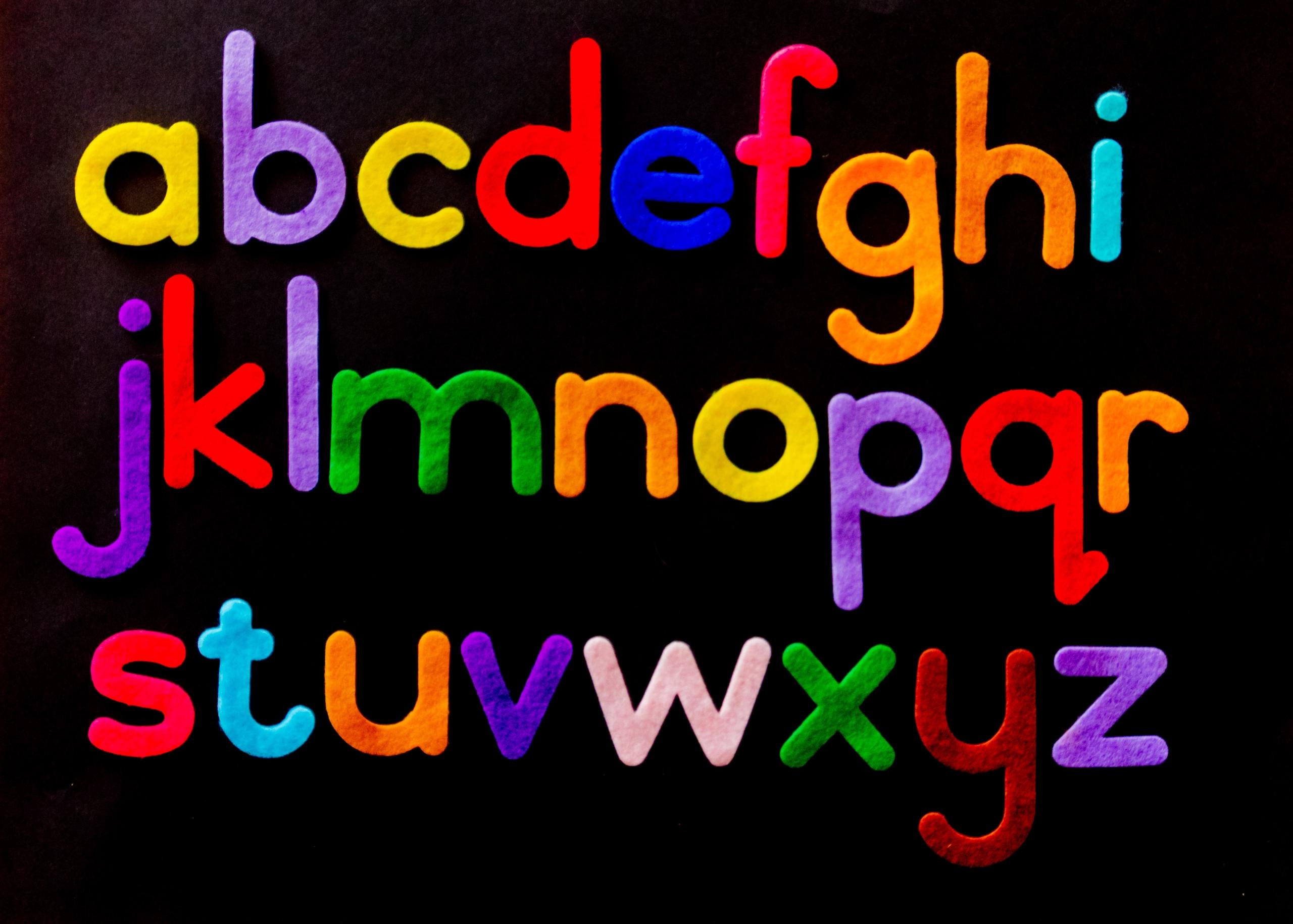The whole idea of spelling Afrikaans words may appear quite daunting to a non-speaker, especially if their ear is not attuned to the way that Afrikaans words are pronounced. However, they may just be very pleasantly surprised to see how easy correct spelling in Afrikaans actually is.
One of the key things that a learner of Afrikaans as a second or foreign language has to do, right at the outset, is to learn the Afrikaans alphabet. Knowing how to pronounce each letter correctly is crucial to being able to read, write and speak this West Germanic language.
Once you’ve wrapped your tongue around the guttural “r” a few times, you’ll start enjoying the totally new sounds that you’ll be uttering, which will also aid you in understanding Dutch, as well as a bit of German and Flemish.
Generally speaking, an English speaker will find that it is far easier to spell Afrikaans words than it is to spell words in his mother tongue. Consider, for instance, words like neighbour, though and thou. And don’t forget Wednesday.
With none of these to contend with, you’ll soon be reading Afrikaans novels!
Use Superprof to find a reputable afrikaans tutor online.

The Afrikaans Writing System and Pronunciation
So, where does the Afrikaans writing system stem from?
Let’s get your lessons in Afrikaans started right here!
The origin of Afrikaans is the West Germanic language, Dutch, which is predominantly spoken in the Netherlands. Most Germanic languages make use of the Latin or Roman alphabet consisting of 26 letters. Over many centuries, it has changed extensively and has been modified for writing in numerous languages.
As mentioned earlier, Afrikaans is spoken the way it is written and this helps with correct pronunciation. In this sense, Afrikaans is similar to a few other languages, including Dutch, Spanish and Arabic.
When considering Afrikaans’s phonology, you will discover that the language is comprised of seven diphthongs and ten monophthongs.
Afrikaans’s long vowels are /e, ø, o, a/ and the diphthongs are /ǝ, œ, œu/.
The vowels are further classified according to the movement of the tongue and lips.
Afrikaans consonants are a far more complex group of sounds and their pronunciation is commonly described according to the following:
- Place of articulation: this relates to the position and movement of the lips and tongue when sounds are formed,
- Manner of articulation: the way air flows during articulation, and
- Voicing value: the type of vocal cord activity that takes place during articulation.
It can get a little complicated, but once you start practising your pronunciation, everything will soon sound just great!
Phonology can also differ across regions, creating different accents across the country, but not to such a marked degree as the difference between the Scottish and American accents.
Take practical grade 1 afrikaans lessons in South-Africa here on Superprof.

How Has History Shaped Afrikaans?
Afrikaans is a language which originated at the southern tip of Africa, following the settlement of various colonial powers.
Initially, the area was first occupied so that merchant ships could take on fresh water and produce on their way to the Near East and then on their way back to Europe. Later, the Dutch settlement at the Cape of Good Hope grew into what became known as South Africa.
Afrikaans, which is sometimes also referred to as Cape Dutch, was developed out of 17th-century Dutch by descendants of the Dutch, French and German colonists, the indigenous Khoisan people and Asian and African slaves.
Although very similar to Dutch, Afrikaans is a separate language in its sound system and its loss of gender and case distinctions.
Afrikaans is the world’s youngest language and one of the smallest, however, it is still spoken by a significant number of people — around 13 million — not only in South Africa, but also in the neighbouring countries of Botswana, Namibia and Zimbabwe.
Way back in time, Afrikaans was often referred to as “Kitchen Dutch” and was looked down on as a mixed or weak form of Dutch used only by uneducated people. However, today, the Afrikaans language has established itself as a language in its own right, and it has been one of South Africa’s official languages since 1925. Over many years it was viewed with great pride by its native speakers, to the extent that a monument was erected in its honour in the Western Cape town of Paarl.
As a Southern African language, Afrikaans is very widespread in South Africa, being spoken in every province, with 60% of its users being black, a figure which is on the increase. So, this language, which originally was the preserve of Afrikaners, has grown exponentially into a language which is utilised daily by people (from across political, ethnic, social and economic settings) to communicate, socialise and to do business.
The Spelling of Afrikaans Words
The way Afrikaans words are written and spelled, is largely determined by tradition and this has been formalised under the banner of Standaard-Afrikaans (Standard Afrikaans).
In terms of spelling rules, each sound in Afrikaans must at least be suggested by at least one letter and, unlike French and English, Afrikaans has no silent letters. Two exceptions, however, are encountered in words like Theron and terug, where the e is sometimes not pronounced, following a Netherlandic tradition.
In order to gain a good grasp of correct spelling in Afrikaans, one must learn to decipher the syllables used in a word, especially knowing whether a syllable is open or closed.

The following rules apply to the use of syllables:
- A syllable always starts before the consonant, e.g. dadelik becomes da/de/lik.
- An umlaut always indicates the start of a new syllable, e.g. oë becomes o/e.
- A syllable will always break between two consonants, e.g. papa becomes pap/pa.
While an open syllable ends on a vowel (a, e , i, o, u or y), a closed syllable ends on a consonant.
To recognise sounds in words, one also has to distinguish between diphthongs and short– and long sounds.
Group 1: Diphthongs
| Open and Closed Syllables | Examples of Words |
|---|---|
| aai | draai |
| ooi | mooi |
| eeu | sneeu |
| oei | koei |
| ou | wou, mou |
| ui | dui, lui |
In all of the above examples, to form the plural form, you simply add an e to the singular form. For example, koei becomes koeie.
Group 2: Long Sounds
Children are taught the rhyme Soen die Reus, as an easy way to remember the diphthongs.
| Open Syllables | Closed Syllables |
|---|---|
| aa | a |
| ee | e (often pronounced as a short “i”) |
| eu | e |
| ie | i |
| oe | o |
| oo | o |
| uu | u |
In the formation of plurals, one letter is often dropped and an “e” added, e.g. skaap becomes skape. Many Afrikaans writers of yesteryear (including CJ Langenhoven) would spell the word vriende and vrinde.
In the closed syllable, the vowels, a, e, i, o, u, are enunciated as long sounds.
Group 3: Short Sounds
“Arme ek is oupa uil” is a lovely little rhyme to help new speakers to learn the pronunciation of the vowels. These sounds are only a, e, i, o and u and are sounded according to these sounds (in the rhyme) in their closed syllables.
When a word is written according to correct spelling principles, the following will apply: if the sound appears in an open syllable it will remain the same, e.g. weg and ver.
When a closed syllable is favoured, but the word does not allow for the consonant to be doubled, a hood is used to force the syllable break.
For example:
- môre, is pronounced as a long, drawn-out “o”-sound and not as “more” /morə/ nor as "more" /muərə/.
- The “e” in the word se /sə/ is pronounced schwa, but as soon as a hood is included, the sound reverts to sê /se:/.
In the plural form, the consonant will be doubled in group 3, e.g. kat becomes katte.
So, there you have it: a good set of rules to help you with correct spelling in Afrikaans.
Just, also remember, that Afrikaans seldom makes use of the letter “c”. Generally, the letter “k” is preferred. Examples of these are sak (bag), pak (pack) and dak (roof). Although not native to Afrikaans, the letters c, q, x and z are encountered mainly in loan words.
All in all, once you have mastered the above spelling rules, you may find the spelling of Afrikaans words relatively easy, especially if English is your first language.
If, however you’re ever in doubt, take lessons in Afrikaans from an Afrikaans tutor at Superprof. These seasoned professionals generally do not charge for the first session, thereby giving you the opportunity to check out a couple of them before committing to work with a particular coach. You’ll be in the pound seat!
Begin vandag en geniet dit! (Start today and enjoy it!)
Summarise with AI:
















